Right To Refuse Medical Treatment For A Child
Right to refuse medical treatment for a child. 10 The difficulty lies in defining a threshold of therapeutic success where treatment should be initiated against the wishes. In 1974 the US. Outside of these circumstances parents have the right to consent or refuse medical treatment for their children.
When the children get to their teenager groups they normally think they can consent to. Factors to consider when facing treatment refusals include whether ongoing medical care is needed for a chronic illness vs. Minors rights to refuse medical treatment useful standards on which to base future court rulings or to enact legislation.
In 1983 the federal government allowed states to. Parents cannot refuse all medical treatment as they can if the objection is based on recognized religious doctrine. If a state refused they would not receive federal child abuse protection grants.
When parents wish to withhold or discontinue standard proven treatment in a child with cancer that has a likelihood of long-term cure referral to the local child protection agency is indicated because a parents inability to provide adequate care for a child is a criminal offense. It follows that the right of child and parent to refuse treatment is not absolute. Religious exemptions in child abuse laws.
CONCLUSION Current legislation which allows a minor to consent to medi-cal treatment without parental interference already poses a challenge to physicians treating children. This puts into question the application of Article 8 of the European Convention on Human Rights ECHR. Whether the parents and child agree.
Children and young people. Although the ability of a parent to consent to potentially life-saving medical therapy for a child is an established canon of family law1 the outer boundaries of a parents right to refuse life-saving medical treatment for a child are ill-defined. You must give your consent permission before you receive any type of medical treatment from a simple blood test to deciding to donate your organs after your death.
Like adults young people aged 16 or 17 are presumed to have sufficient capacity to decide on their own medical treatment unless theres significant evidence to suggest otherwise. Department of Health Education and Welfare first required states to have clauses in their child abuse and neglect legislation that permits exemptions from prosecution of parents on religious grounds.
When the children get to their teenager groups they normally think they can consent to.
Competent Childs Capacity to Refuse Treatment Under section 8 of the Family Law Reform Act 1969 minors between the ages of 16 18 are authorised to consent to their own treatment. It follows that the right of child and parent to refuse treatment is not absolute. If you refuse a treatment your decision must be respected even if is thought that refusing treatment would result in your death or the death of your unborn child. Minors rights to refuse medical treatment useful standards on which to base future court rulings or to enact legislation. Cases such as Re. Medical Treatment 3 have made it clear that children do not have the collateral right to refuse treatment as they do to consent. Values religious freedom to the point where states are willing to grant parents the right to refuse even life-saving medical treatments for their children if the parents can show that. This puts into question the application of Article 8 of the European Convention on Human Rights ECHR. If a child has a terminal condition and several doctors agree that treatment is no longer beneficial for the child then the parents have the right to refuse treatment and seek hospice care for their child.
People aged 16 or over are entitled to consent to their own treatment. Medical Treatment 3 have made it clear that children do not have the collateral right to refuse treatment as they do to consent. Parents cannot refuse all medical treatment as they can if the objection is based on recognized religious doctrine. If you refuse a treatment your decision must be respected even if is thought that refusing treatment would result in your death or the death of your unborn child. The court is bound to have regard to the ascertainable wishes and feelings of the competent child or capacitous young person and will not lightly override their refusal if the minors decision is sensible or the treatment. A brief explanation of and introduction to Article 8 is first required. In 1974 the US.





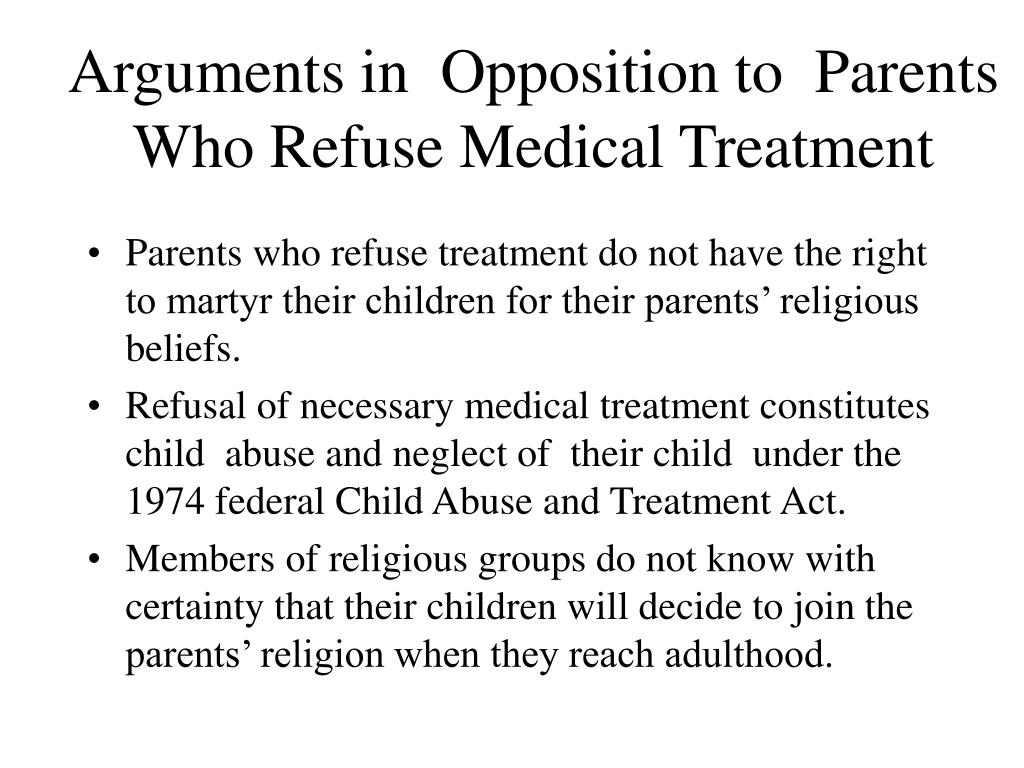


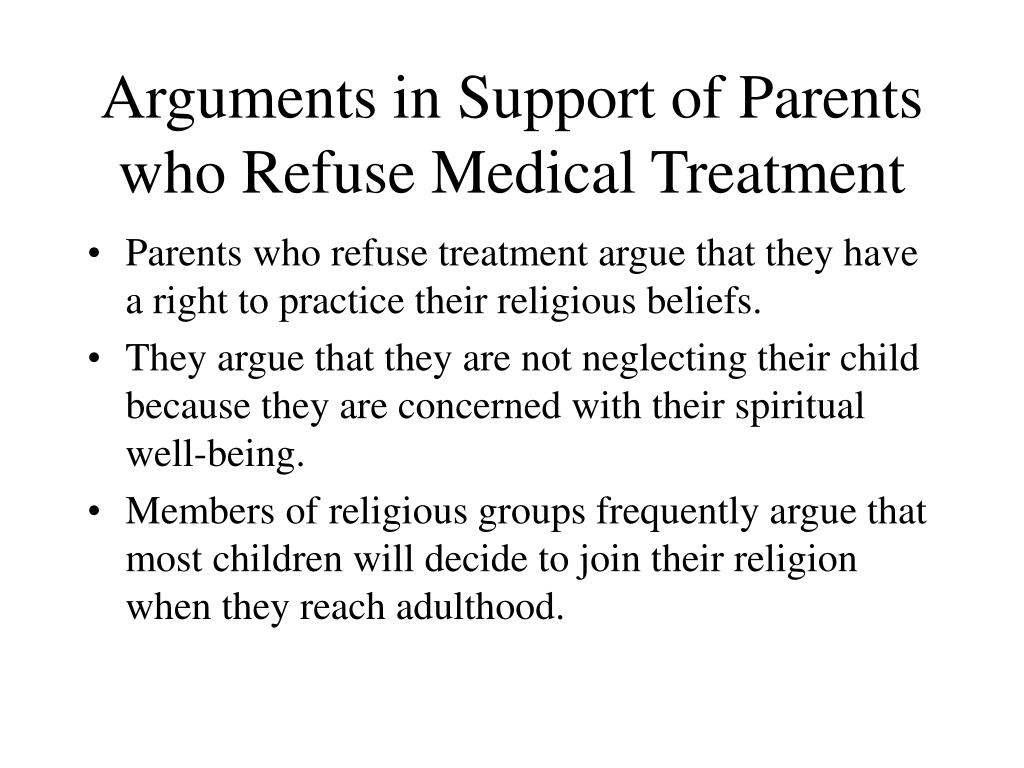
/empty-beds-in-hospital-room-505936647-59515fa13df78cae8170ff0d.jpg)
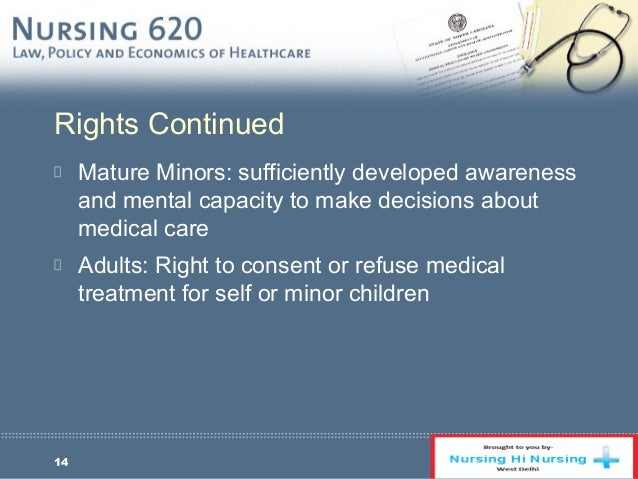






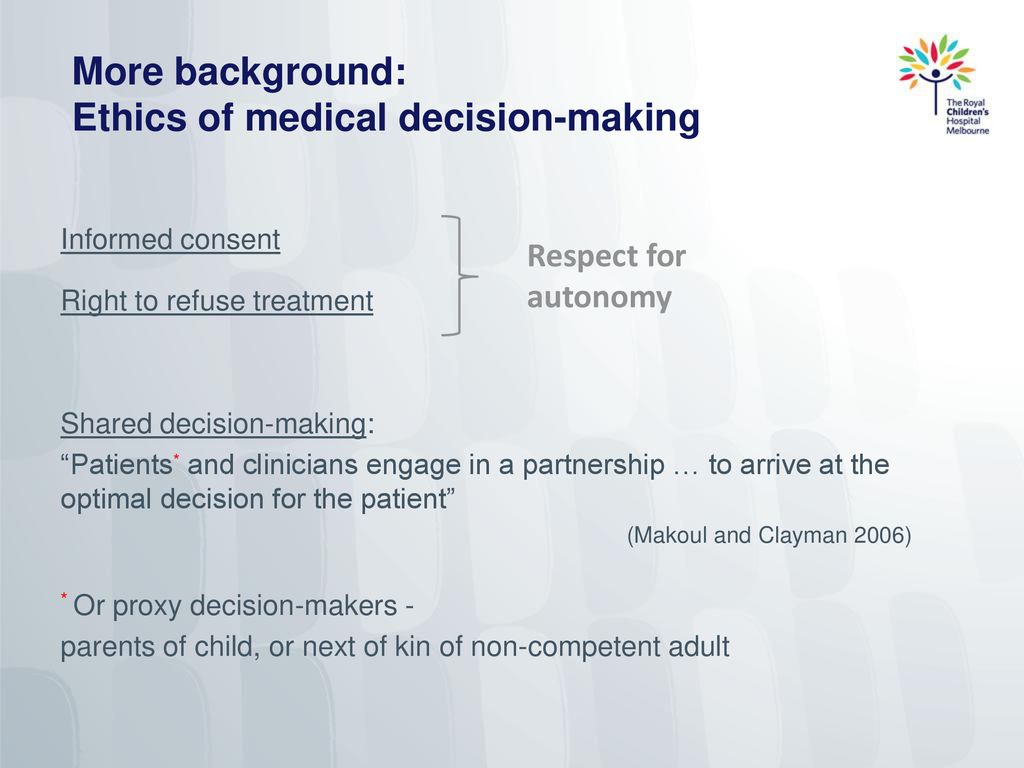
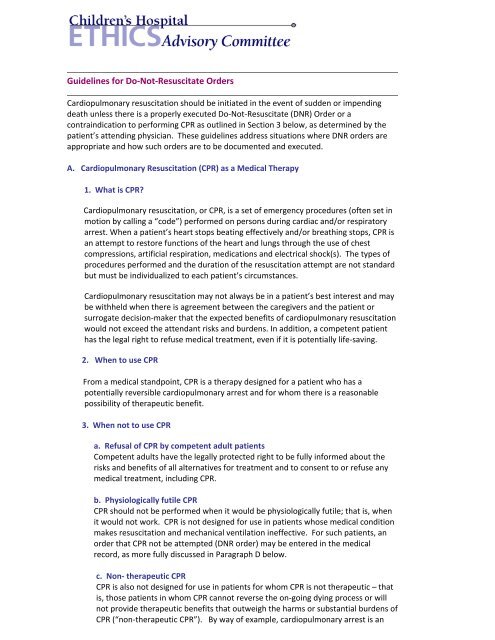

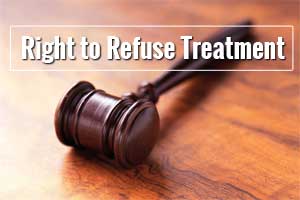







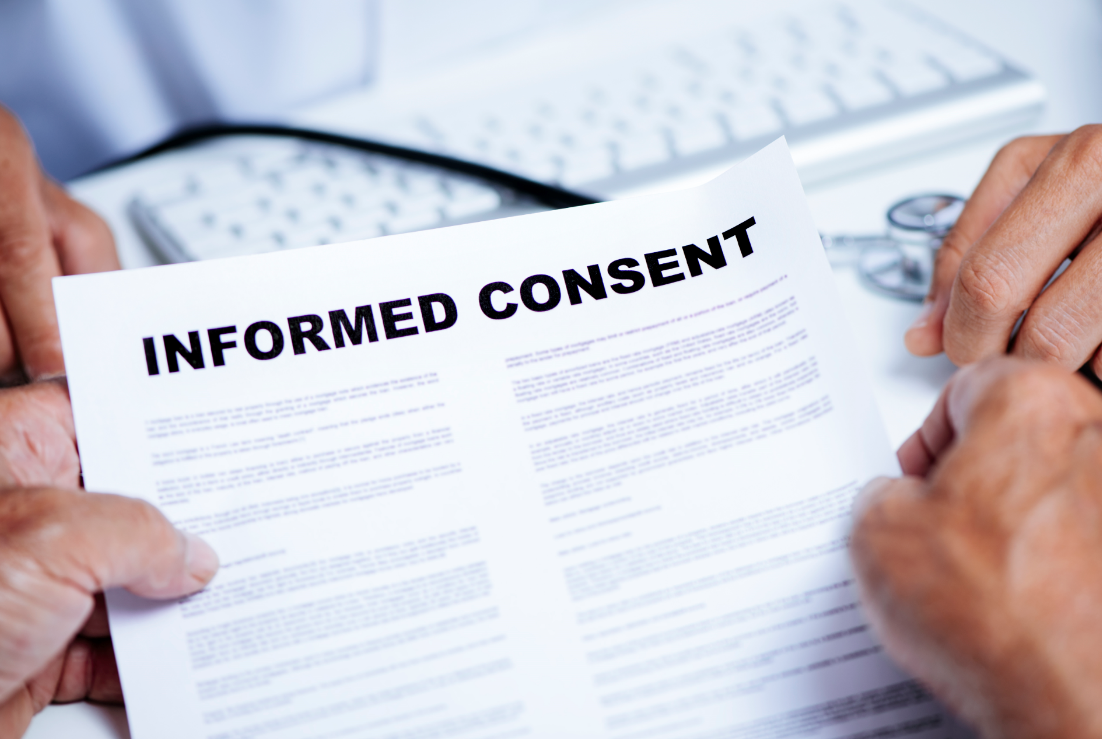






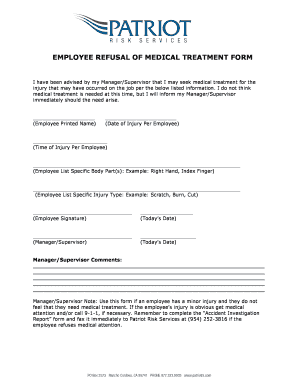



Post a Comment for "Right To Refuse Medical Treatment For A Child"